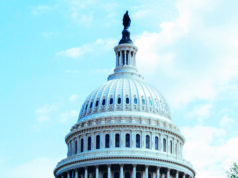
The Society for Vascular Surgery (SVS) has joined the Surgical Care Coalition as part of a show of solidarity against pending Centers for Medicare & Medicaid Services (CMS) payment cuts.
News of the move was announced in a communique from new SVS president Ronald L. Dalman on Wednesday.
The Surgical Care Coalition, which advocates for access to quality surgical care for all Americans, is comprised of 12 surgical professional associations that collectively represent more than 150,000 surgeons across the country.
Dalman referenced “the extraordinary pressure” under which the U.S. healthcare system currently operates. “The COVID-19 pandemic has created an uncertain financial future for surgeons—and this is before we factor in the Medicare payments cuts, planned before the pandemic, that will take effect in six months,” the chief of vascular surgery at Stanford University, Stanford, California, told members.
“To that end, I am excited to announce that the SVS, along with 11 other surgical associations, is part of the just-launched Surgical Care Coalition. While we have worked in concert with these other surgical groups in the past, we are now coming together as a unified force to address the pending Centers for Medicare & Medicaid Services (CMS) payment cuts. As a coalition, we are focused on getting Congress and the Administration to understand how these payment cuts will hurt patients and their care teams. These cuts threaten patients’ access to timely surgical care and will impact the quality of life for the people we care for every day.”
Dalman painted a stark picture of what confronts hospital and private practice finances in the face of the delayed procedures put on the back burner in recent months. The pandemic saw the SVS hear from 5,000 members who feared the cuts could harm their practices, he said.
The Society found that one in three private practice surgeons are concerned they will have to shut down; 45% of surgeons have made a financial sacrifice by cutting their own pay or by paying employees despite falling revenues; and 35% of surgeons suffered negative financial consequences due to COVID-19, such as taking on debt and laying off or furloughing employees.
“Right now, we are focused on putting these issues on the nation’s agenda and stopping the payment cuts to surgeons,” Dalman added. “We are asking Congress to step in and ensure Medicare patients continue to have the best access—to the best care—when they need it and where they need it. You will be hearing from the Surgical Care Coalition and me a lot more as Jan. 1 approaches, because we believe these payment cuts are the top issue facing our patients and us right now.”











